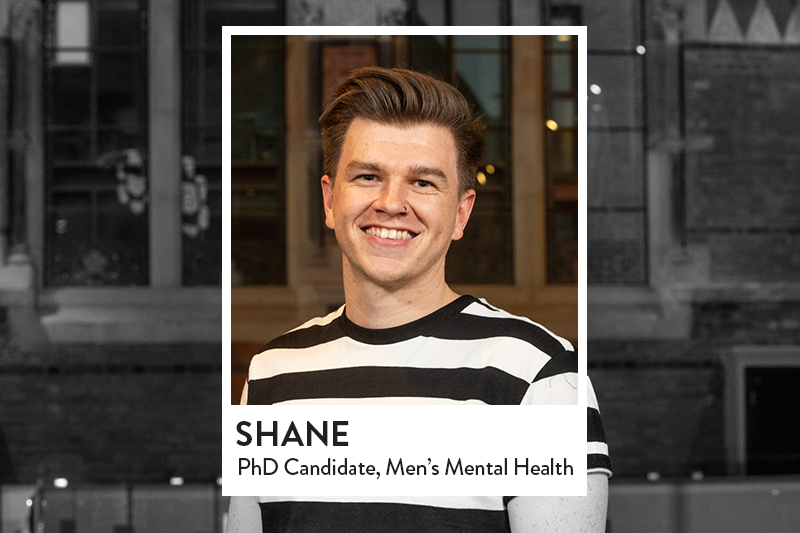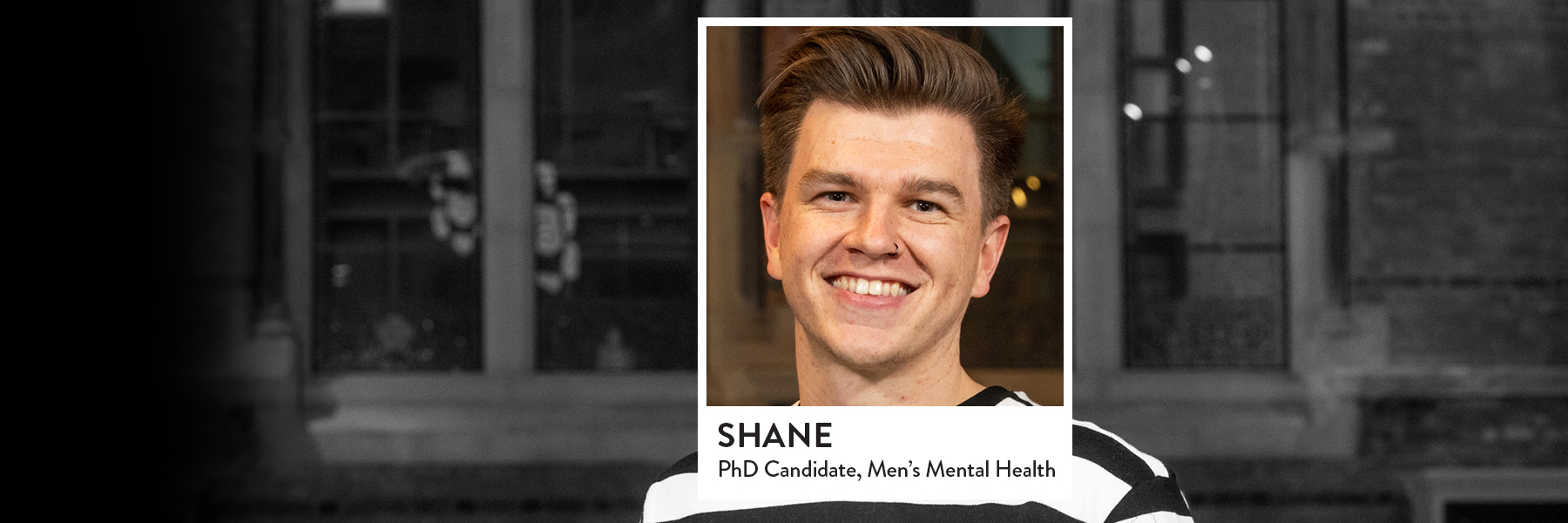Student Stories
"What if we re-define the phrase man up to mean something that positively benefits our lives and our loved ones?"
I began to reflect on how phrases like “man up” and “big boys don’t cry” impact men’s mental health.
My area of research is concerned with men’s mental health. Men can often be reticent to engage in a formal mental health process and so a lot of research has explored how to engage men through alterative means. In my PhD research, I’m looking at the use of participatory arts to promote mental health among men. Participatory arts have been found to promote social connectedness, self-efficacy, hopefulness and resilience which are key factors in maintaining positive mental health.
Some shared experiences we talk about, some we don’t
During my undergraduate degree I became increasingly aware of a number of suicides among men my own age. I began to reflect on how phrases like “man up” and “big boys don’t cry” impact men’s mental health. The words themselves are not particularly damaging but they represent and reinforce the idea of how men should ‘be’ – emotional withdrawn and invulnerable. It’s not that us men don’t have emotions; we are taught to repress and deny them. This stimulated my interest in the areas of men’s mental health and my desire to help change the narrative in any way that I can.
Challenging perceptions around male mental health
I wasn’t immune to the same pressures myself. I have dealt with anxiety from a very young age but I always tried to hide it. I didn’t want to tell anybody else about it in case they would think there was something wrong with me. That all changed one day when I couldn’t hide it anymore. I opened up to my mates about it. All of a sudden everyone was sharing how they had felt similar in the past and were offering support if I ever needed it. It was like a weight being lifted off my shoulders. From that moment on, anytime I felt anxious, I just talked to someone about it and I would feel instantly better.
What if we re-define the phrase man up to mean something that positively benefits our lives and our loved ones? What if it meant to take proactive steps to support our mental health, to embrace conversations around wellbeing or to be there for each other in times of distress? This is not about changing the whole make up of men, it’s actually the opposite. It is allowing men to be their true selves, to feel comfortable expressing feelings of compassion, sadness, caring and love. What a better place to start by reaching out for support or by asking a friend “is everything okay?”.
Get Support
Mental Health issues can affect anyone at any time. But confidential, professional help is available through the University.
To find out more, click the button below:
#QUBeWell

Some shared experiences we talk about, some we don’t
